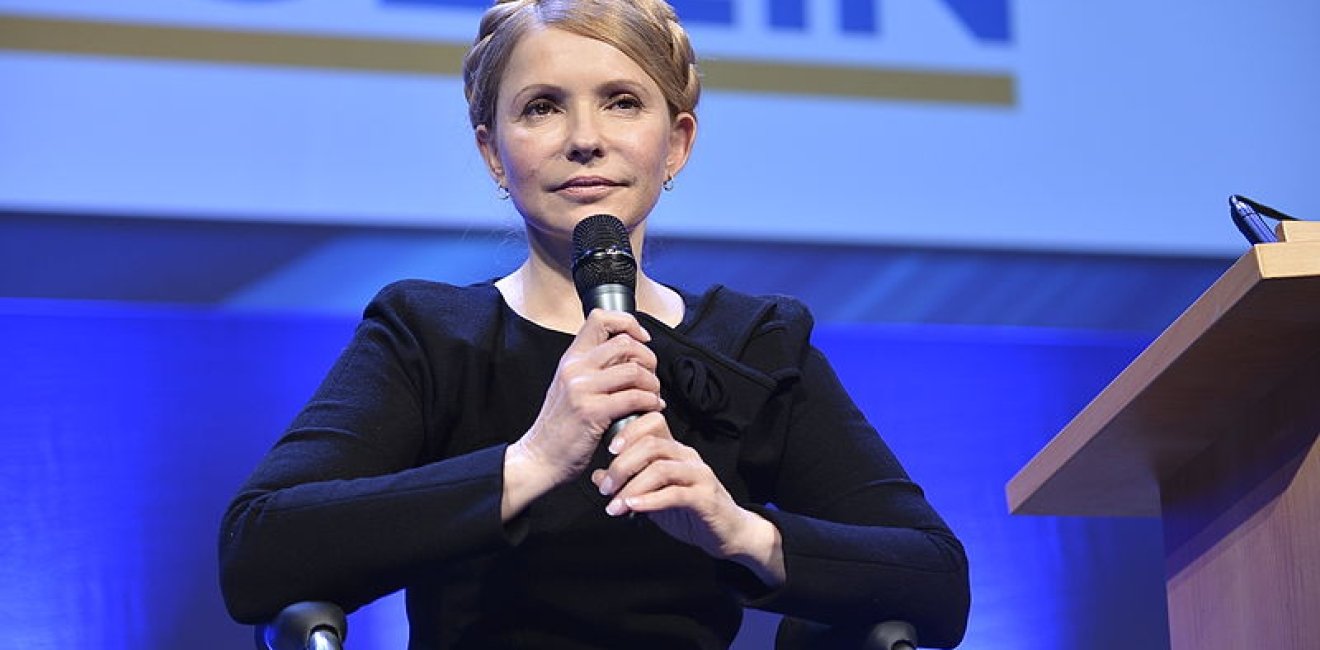
A blog of the Kennan Institute
BY ANDRIAN PROKIP
This fall has seen Ukraine gripped by election fever. Though the official launch of campaigning for next year’s important presidential and parliamentary elections is slated for early January 2019, declared presidential contenders are already out on the hustings, presenting policies they hope will distinguish them from other candidates and smooth their path to the top. Some of the promises being made are indubitably populist and intended chiefly for vote-getting, but they still warrant attention, especially if they raise expectations about the future course of the country.
Currently the former prime minister, Yulia Tymoshenko, has the highest approval rating of the declared candidates, whose number includes Ukraine’s president, Petro Poroshenko. Different public opinion polls find that between 16.6 percent and 23.1 percent of likely voters are ready to vote for Tymoshenko. (For comparison, support for Poroshenko falls between 8.1 percent and 12.5 percent in the same polls, though incumbency may yet work in his favor.) Thus at least some of Tymoshenko’s campaign promises may see the light of day next year.
An important plank in Tymoshenko’s platform concerns changes in energy pricing and how the state-owned Naftogaz of Ukraine, the country’s largest gas supplier, should be run. Though changes to the energy sector are part of the current administration’s reform efforts and among the IMF’s demands, Tymoshenko has advanced her own ideas as to what those changes should entail. At a September 28 press conference, she startled observers by saying that after being elected, she would “liquidate” Naftogaz as an intermediary in Ukraine’s gas market.
Currently Naftogaz and its subsidiaries, which are responsible for gas transit from Russia to the EU and produce about 80 percent of all gas extracted in the country, also import gas from the EU and sell it to regional gas distributing companies, which in turn sell and supply gas to final consumers. It is this last function that Tymoshenko’s comments were directed toward, though she did not specify how she envisaged the liquidation process to proceed. It appears, however, that she would prefer not to have state-owned companies in the gas sector run by independent boards, as Naftogaz is now, because an independent board would mean independence from the government..
Naftogaz’s officials lost no time in responding to the proposed liquidation. The first issue they pointed to was that Naftogaz won its arbitrage case against Russia’s Gazprom, which now has a judgment against it in the amount of U.S. $2.56 billion owed to Naftogaz. Naftogaz is trying to collect on this debt, but liquidation would put an end to such efforts.
Naftogaz also called out Tymoshenko for switching positions, pointing out that when Tymoshenko was previously in power, she had no issues with how Naftogaz was run, though the entity was unprofitable. However, gas prices—an especially sensitive topic, and one Tymoshenko frequently makes public pronouncements on—were much lower then, which contributed to Naftogaz’s lack of profitability. Now, Naftogaz is the biggest source of funding for the state budget, being responsible for about one-fifth of budget revenues.
Later, on October 1, Tymoshenko clarified her position on Naftogaz, saying that Naftogaz should be liquidated after Gazprom paid its debt. She also said she would reverse current policy, which is moving toward incrementally higher gas prices for end users, and make gas prices cheaper. In her view, this could be achieved by having UkrGazVydobuvannia, a subsidiary of Naftogaz and the biggest gas producer in the country, sell gas directly to households. The underlying expectation is that the company should be able to sell domestically produced gas at a lower cost than imported gas.
Tymoshenko’s history in the gas industry means that her campaign promises concerning the energy sector must be taken seriously. Even before she started her political career, in the mid-1990s she served as president of United Energy Systems of Ukraine, a privately owned company that became the main importer of gas from Russia into Ukraine. Her knowledge of the industry and the deal-making connected to it has transferred well to a political career emphasizing social equity.
The political face and the timing of her recent pronouncements on liquidating Naftogaz are probably also intended to leverage popular dissatisfaction with the enormous bonuses paid to Naftogaz’s top management after the successful conclusion of the arbitration proceedings. The figure bandied about in the media was $46 million in bonuses—a considerable sum for a country that is not wealthy.
Tymoshenko will have difficulty, however, reconciling low end-user gas prices with her platform, which goes under the rubric A New Economic Course. Though the published plan is more declaratory than explanatory, it does underline the importance of continuing collaboration with the IMF and articulates a goal of establishing competitive energy markets. The friction created by her recent promise to keep gas prices low for end users has much broader ramifications for the country’s development and Euro-Atlantic integration.
The IMF has stressed the need to achieve market prices for energy in Ukraine, a condition for receiving the next loan tranche (technically there is still no market, so current pricing cannot be described as market pricing in the full sense of the term). But the issue of market pricing for energy extends well beyond lending; it is part of a comprehensive set of changes designed to bring Ukraine’s energy sector in line with EU countries’ practices.
I have previously written on the importance of market gas pricing for energy reforms. The same applies to electricity pricing. Should Ukraine’s leadership fail to execute on electricity market reform and integrate Ukraine’s markets with the European market, the country’s electricity-generating technology will become increasingly obsolete and its capacities inefficient. Politically, the Ukrainian electricity market will remain in an oligopoly mode, dominated by a few large sellers that have the potential to control pricing. Because Ukraine is the most energy hungry country in Europe, efficiency in the energy sector, from prudent household practices to gains achievable with the use of modern technology for producing and transmitting energy, should be at the front and center of any political platform. And keeping energy prices low for end users can only detract from this goal.
In general, then, a Tymoshenko administration would be expected to depart from the path of reforming Ukraine’s energy sphere, a path intended to make the energy sector modern, efficient, and market-oriented. In the larger picture, however, what is at stake is not so much continuing on the current path of reform—certainly important in itself—but the trust of Ukraine’s Western partners. To uphold that trust, Ukraine needs to keep on the track of reforms in general, and demonstrate to its partners that it shares European values and principles and a commitment to European integration. Failure to hew to its previously adopted reform course and corresponding obligations would raise doubts about Ukraine’s ability to integrate its system with the EU’s gas and electricity markets. Integrating systems is a significant step that would reduce Ukraine’s dependence on Russian supplies and make the country’s energy sector more competitive. With the formal start of the campaign still a couple of months away, Yulia Tymoshenko has time to change her mind.
Author

Director, Energy Program, Ukrainian Institute for the Future

Kennan Institute
After more than 50 years as a vital part of the Wilson Center legacy, the Kennan Institute has become an independent think tank. You can find the current website for the Kennan Institute at kennaninstitute.org. Please look for future announcements about partnership activities between the Wilson Center and the Kennan Institute at Wilson Center Press Room. The Kennan Institute is the premier US center for advanced research on Eurasia and the oldest and largest regional program at the Woodrow Wilson International Center for Scholars. The Kennan Institute is committed to improving American understanding of Russia, Ukraine, Central Asia, the South Caucasus, and the surrounding region through research and exchange. Read more

Explore More in Focus Ukraine
Browse Focus Ukraine
Talking to the Dead to Heal the Living

Ukrainian Issue in Polish Elections


